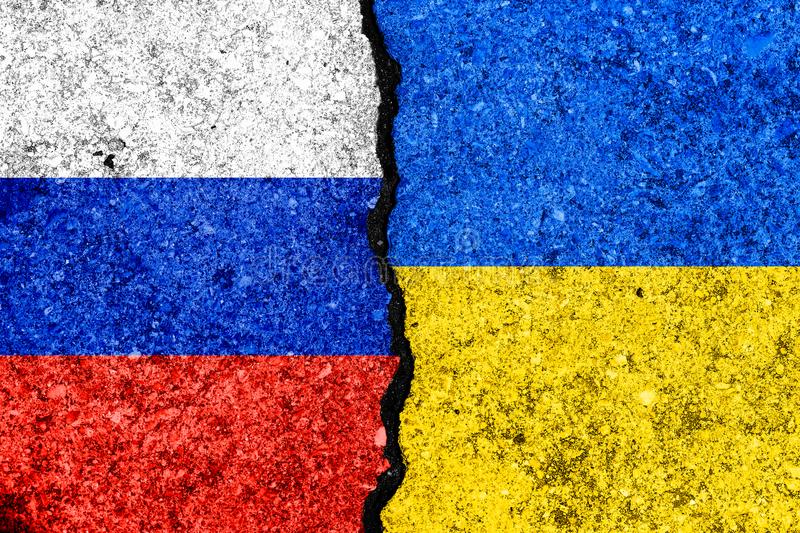The US Needs To Send Troops to Ukraine
April 8, 2022
On February 24, 2022, Russian president Vladimir Putin ordered his troops to cross into Ukrainian territory and lay siege to its cities with the ultimate goal of destabilizing its government and replacing Volodymyr Zelenskyy with a pro-Moscow leader. The rest of the world reacted to the images of death, destruction and chaos with abject horror, denouncing the military operation as an invasion on the scale of Germany invading Poland in 1939.
They’re not wrong. Currently, Ukrainian civilians and soldiers alike are defending the capital with all their might, and unbelievably, they’ve managed to repel the Russian invaders. But the death toll, from civilians and military personnel, is officially in the hundreds. Although, unofficially, it is likely much higher. Ukraine may be much stronger than the West gave it credit for, but it might not be able to hold out much longer.
To understand why the US should send troops to Kyiv, we need to know why, exactly, Putin has chosen to go to war with Ukraine. The answer is simple: NATO. The North Atlantic Treaty Organization is an alliance formed by the US, Canada, and much of Western Europe that, among other things, was designed to counteract Soviet expansion in the aftermath of WWII.
Recently, Ukraine, which shares a long border with Russia, has expressed interest in joining NATO. That idea made Putin extremely nervous, and he has alleged that NATO poses an existential threat to Russia’s national security. He has used that idea, and other baseless accusations, as his reasoning for invading Ukraine. Putin has accused President Zelenskyy (who, it should be noted, is Jewish) and other Ukrainian leaders of being “drug addicts and neo-Nazis,” and has encouraged the Ukrainian military to turn on their country and seize power. Needless to say, they have staunchly refused. One bold Ukrainian even told a Russian warship to “go f*** yourself” after being threatened with the use of heavy artillery. That soldier, and the others on the island, were presumed dead, but according to more recent reports, may have survived the assault.
Earlier, I compared Nazi Germany’s invasion of Poland to Russia’s invasion of Ukraine. That may, unfortunately, be more accurate than we would hope. After Germany invaded Poland, the US and Europe threatened sanctions and warned Germany that if it advanced further, it would be confronted with military force. Does that sound familiar? It should, because that is exactly how NATO is treating Russia. Just like in WWII, Russia shows no willingness to stop at Ukraine. As a matter of fact, just hours after negotiations ended, reports indicate that the Kremlin has ordered a group of Russian mercenaries to assassinate President Zelenskyy, a move that, if successful, would prompt even more international outrage, especially considering that Zelenskyy is now a world-renowned model of courage and bravery.
So, with all that being said, why should the US send in troops? Because Russia’s invasion doesn’t just threaten Ukraine. For one thing, Russia has threatened “consequences like you’ve never seen” for any country that tries to stop the invasion. Does Germany’s shipment of 1,000 anti-tank weapons and 500 Stinger surface-to-air missiles count as trying to stop the invasion? Because if it does, that means a NATO member has been directly threatened with an act of war, which would require NATO to call a special convention, under Article 4, and could then choose to invoke Article 5, if Russia were to follow through on that threat. And what about the sanctions that virtually every NATO member has placed on Russia or even Putin himself? If that counts as interference, then Putin’s threat extends to virtually all of NATO, and plenty of non-member nations as well. But even if NATO cannot or will not act against Russia, the United Nations, which has a much more pronounced stance against the war crimes Russia is committing, should. The UN may even have a better case for intervention than NATO, considering that both Ukraine and Russia are members of the UN, and neither are NATO members, although considering that Russia is a permanent member of the UN Security Council, UN action against Russia is unlikely.
But even more than that, it’s entirely possible that, just like in 1939 with Nazi Germany, Russia will continue to invade sovereign nations. It could, theoretically, attempt to expand back to the size of the USSR. At that point, Russia will not stop because of sanctions. So if the US and NATO want to prevent a literal Third World War, they need to get involved. Not just with sanctions or weapons. If Russia is to be stopped, it needs to be stopped, here and now. While it’s true that Russia could choose to escalate to nuclear conflict, even without military intervention from NATO, that’s a risk I believe NATO has to take.
That seems like a very aggressive stance, And to be fair, it is. But while history does not always repeat itself, it certainly does rhyme. So if NATO wants to predict the future, it should look to the past. The last time a sovereign nation tried to destroy democracy and liberty in another sovereign nation, it succeeded. It succeeded again, and again, and again, until it took the combined military might of the entire world to stop it.
Sure, the Allies’ victory is encouraging, but at that time nuclear bombs hardly existed, and the death toll was close to a hundred million souls. This time around, there might not be enough left to rebuild. If NATO truly wants to defend “every inch of its soil” it needs to start fighting now. We can’t wait for Russia to attack us. We need to strike Russia now.






































